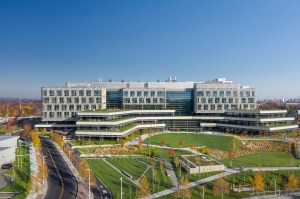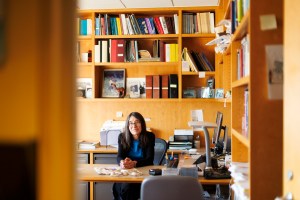
Sam Kesner’s “Cathbot” system can make sophisticated heart repairs without the need for a heart-lung bypass machine or heavy sedation. As a result, the surgery is safer and less invasive.
Image courtesy of Sam Kesner
URES taps three SEAS grad students
Invitation-only conference brings together students, entrepreneurs
Three technology proposals from the Harvard School of Engineering and Applied Sciences (SEAS) have been selected for presentation at the University Research and Entrepreneurship Symposium (URES). Graduate students Sam Kesner, Qimin Quan, and Wonyoung Kim will present their innovative research to an audience of venture capitalists and entrepreneurs on March 31, with the hope of attracting investors and commercializing their work.
URES, an invitation-only conference, evaluates technology proposals from researchers at universities across the United States and selects a few for presentation through a highly competitive application process. The event is designed to expose New England entrepreneurs to the very best emerging technologies in the nation.
Kesner’s Motion-Compensated Catheter System is a robotic cardiac catheter that compensates for the motion of a beating heart, allowing doctors to perform delicate open-heart surgery with only a small incision.
Quan’s technology is an ultra-sensitive biosensor for use in genomics, proteomics, and cancer and virus detection. Like most sensors used in these fields, it detects the presence of biomarkers, chemical indicators that help with location and identification of certain types of cells, proteins, or other structures.
Kim’s multi-core voltage regulator (MCVR) is a device that improves the energy efficiency of computer processor chips through a method analogous to shutting off the lights when leaving a room. Built directly onto the chip, it recognizes portions of the processor (such as the graphics core or the video core) that are not in use and reduces power to those sections.





